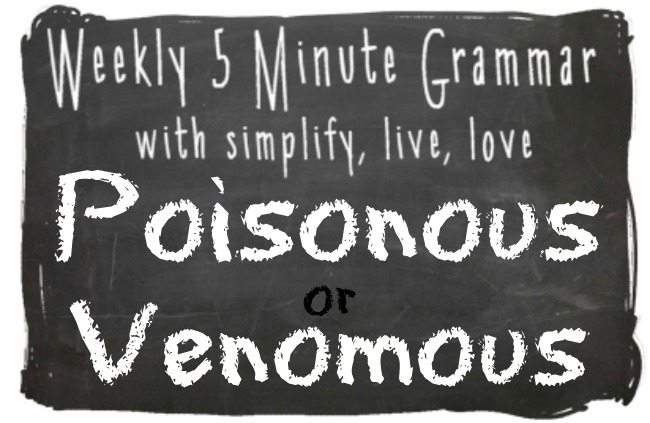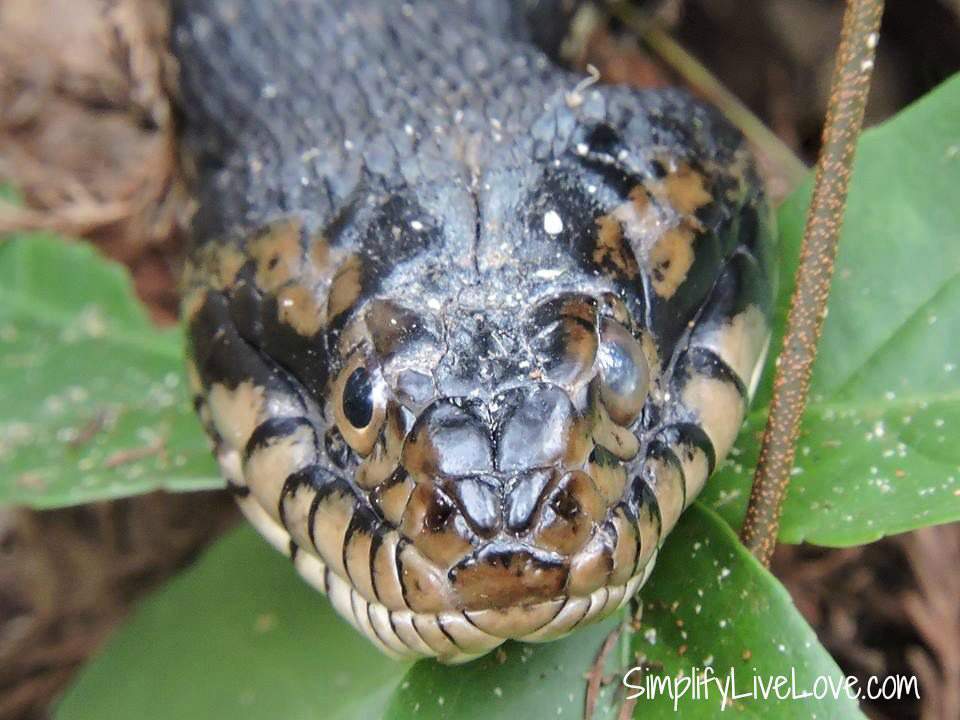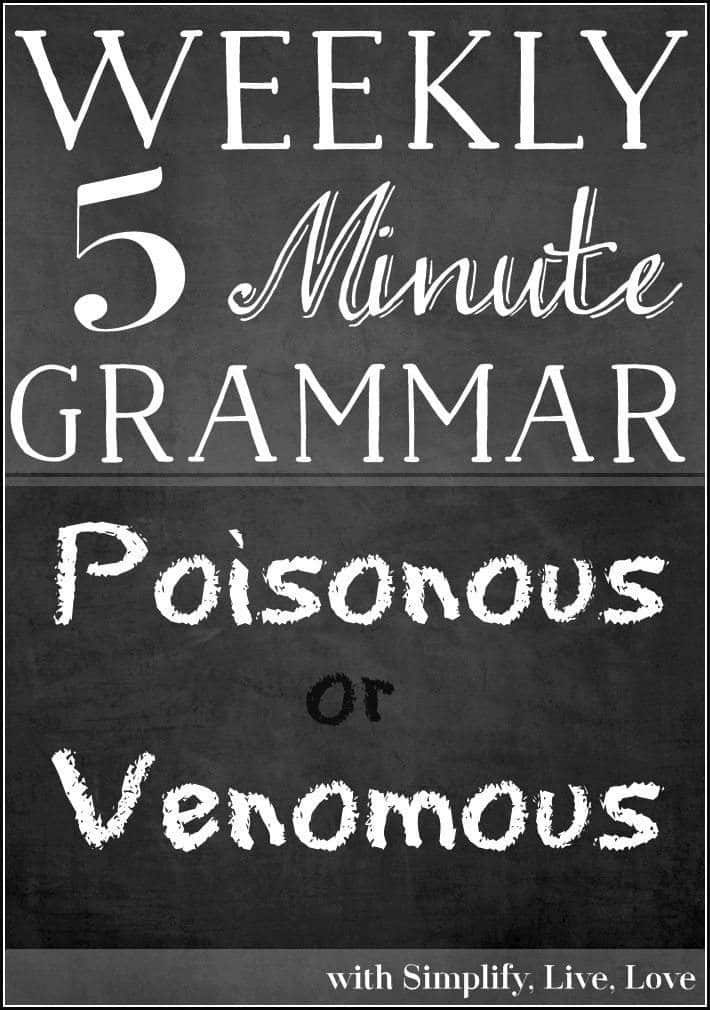5 Minute Grammar Lesson – Poisonous or Venomous?
on Feb 12, 2017, Updated Jul 20, 2020
This post may contain affiliate links. Please read our disclosure policy.
Today’s 5 Minute Grammar Lesson come from a young friend in Florida and explains when to use POISONOUS or VENOMOUS. Many thanks to Liam for addressing this topic in my 5 Minute Grammar Lesson Series!

*This post contains affiliate links. Thank you for supporting my blog.*
Poisonous or Venomous – What’s the Difference?

I (Liam) have owned a snake for over 9 months now, and I am frequently showing it off to guests. Some don’t want me to open the cage, some want to hold it, and some are just fine watching it through the glass. I love educating people about snakes, and am almost always asked questions. There are many different questions that people ask me.
However, the most frequently asked question is by far, ‘Is she poisonous?’, to which I reply, ‘She is not venomous.’ I understand how people can get these two words mixed up, as many forms of media incorrectly refer to these two terms. People will often hear a snake or other animal called poisonous, and begin to call venomous animals poisonous as well. In this blog post, I will explain the differences between the two, and give some examples of animals, especially reptiles, that display these traits.
Poisonous
The most commonly used term that inexperienced people use when discussing snakes in poisonous. However, very few snake species are poisonous, though there are quite a few amphibians that are poisonous, such as poison dart frogs (Dendrobatidae). The best way to describe something that is poisonous is that if you come in contact with the animal, you will feel the effects of toxins that are secreted through the skin. The animal will usually have bright colors to warn potential predators not to touch them or try to eat them.
Poisonous animals tend to have this defensive mechanism only as a last resort. 90% of snakes will flee as soon as you come near them, and will not bother you if you do not bother them. However, when feeling very threatened, they will secrete toxins, play dead, or even bite to defend themselves (more on that later). Remember, if someone is handling a snake, then the snake would not be poisonous, and you wouldn’t have to worry about it.

Venomous
The other term, venomous, is typically used by people who have experience with snakes, or who have talked to and have been educated by someone who does. Venomous is generally the correct term for snakes and other reptiles. Over 600 species of snakes around the world are venomous, but only a certain percentage of these are even life-threatening. An animal that is venomous must inject its venom, either through, teeth, saliva, or fangs. When a venomous snake bites, it creates a wound, and then inserts the venom into that wound.
Some snakes inject more venom than other snakes, and some have more deadly types of venom. There are some main types of venom: cytotoxic venom, neurotoxic venom, and hemotoxic venom. Different snakes can have different types of venom, based on several factors. One of these is prey items. Certain animals that the snakes eat can lead to different types of venom production. Don’t forget, venomous animals are animals that must inject venom into their prey, such as snakes.
To the amateur, poisonous and venomous might seem to be the same thing, but when you understand the differences, they appear quite different. Poisonous is dangerous when it comes in contact with the skin. Venomous animals must inject their venoms into their victim, and have various types of venom. I hope that you learned about the difference between poisonous and venomous.

Many thanks to Liam for writing this educational post! His parting wish is this: “The next time you see someone incorrectly use these terms, make sure you don’t just let false information get passed on. Step in, and educate one more person about the differences between poisonous and venomous.”
Facts are facts, you guys. “Alternative facts” have no place in my world.
Want more grammar?
How to make the word PEOPLE possessive
And if you’re looking for helpful grammar resources, here are my top picks:
Grammarly – Instantly fix over 250 types of errors with this free web-based grammar checker!
Strunk & White Elements of Style
The Blue Book of Grammar and Punctuation
Eats, Shoots, and Leaves: The Zero Tolerance Approach to Punctuation
The Grammar Girl’s Quick & Dirty Tips for Better Writing
Check back next Sunday for another quick grammar lesson! And if you’d like to get weekly grammar tips delivered straight to your inbox, please subscribe to my once a week newsletter. I promise I won’t spam you. 🙂














Venom is variously called a toxin or a poison in technical writing. When a venomous snake bites you and injects venom into the bite, we definitely do not say, “the snake venomed me.”
So, when we say “the venomous snake bit me, and…” is it proper to say, “…and it poisoned me with its venom”?
It seems to me the sentence “I was poisoned by a venomous snake,” is accurate. In trying to look it up, I see medical and biological writing simply avoid the question entirely.
Venom seems to be the technically correct term based on how poison or toxin is delivered, but doesn’t stop the dangerous chemical from being a poison or toxin.